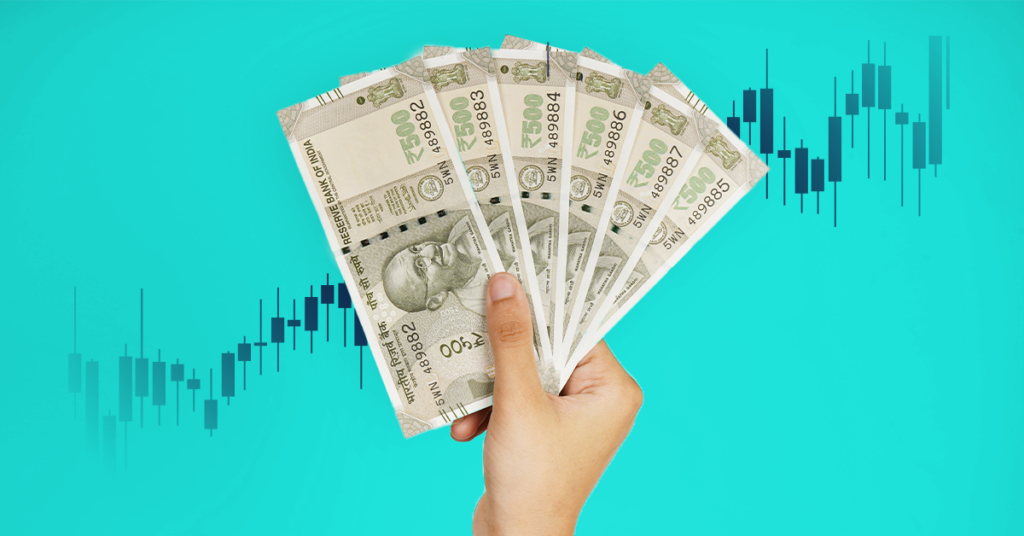What is the Minimum Amount Required for Forex Trading in India

Stepping recently into the Forex Trading world? We totally understand your reasons. This field holds a lot of promising opportunities, and it has started to gain more popularity all over the world. Forex Trading in India, for example, has witnessed significant growth. Indeed, technological advancements have made global currency markets accessible to individual investors as never before.
Since you are newly planning to get into this world, one of the questions you have in mind, we guess, is “what is the minimum amount required to start my journey?’. Well, you have landed on the right page!
Although the answer to this question is not simple, we are ready to give the details on that. In general, the minimum requirement depends on various factors such as market conditions, trading strategies, and broker policies. Let us dive deep more into that.
What is the Minimum Amount for Forex Trading?
Let us cut into the chest and start with some tangible facts. We mentioned already that different brokers can require you to start with different levels of requirements. Another factor that comes into play in this regard is the type of account that you open, and do not worry about that! We will explain more about that later in our article. Additionally, you need to bear in mind that different jurisdictions might require you to start with different minimum deposits.
The best possible scenario when it comes to forex trading in India, for example, is to be given the chance to start with as low as INR 500 or even INR 1,000. Some account providers allow traders, like you, to access trade with very low amounts of money, even ten dollars at a time (approximately INR 800). Whereas, some accounts require a higher minimum amount ranging between $100 to $500 (INR 8,000 to INR 40,000) depending on the broker.
Factors That Influence the Minimum Amount
So, now you have a general idea about the minimum required amount to start trading. You know that it varies according to the broker and account. What about the other factors? Here are some:
- Broker Policy:
What you need to know in this regard is that brokers might be targeting traders with different levels. Those who are targeting beginners will usually ask for a lesser amount. As for those targeting professional ones, they will require a higher minimum deposit.
- Trading Strategy:
Not all factors are related to the brokers. Some of them are related to you, the trader! Yeah, the strategy that you use affects the minimum deposit that you employ. How? Okay, take scalping strategies: they make small profits from a large number of trades, so they require a very small capital. Long-term trading strategies would typically demand a larger capital base in order to survive short-term market fluctuations.
- Market Conditions:
So, we have the conditions related to the broker, your strategy, and we still have the ones related to the market itself. How volatile or stable a market is will have an impact on the minimum deposit. The more volatile the market is, the higher the capital needed to manage risks better. The more stable market, on the other hand, requires fewer investments.
What Currency Pairs Are Allowed to Trade?
We have so far developed the basic knowledge of the minimum deposit, and we can move forward to learn about the pairs to trade. Investors have a wide range of currency pairs to trade in general but that can vary according to the region.
In India, for example, the Reserve Bank of India regulates the currency pairs that traders are allowed to trade. These include INR-based currency pairs such as USD/INR, EUR/INR, GBP/INR, and JPY/INR.
How Currency Pairs Affect the Minimum Investment
The choice of pairs goes a long way in determining the capital amount required to trade forex. Here is how that works:
- Major Pairs: The pairs that we refer to as major pairs, such as USD/INR are usually more liquid, and thus have tighter spreads. Spreads are the difference between the sell price and the buy price. The tighter they are, the easier it is to trade smaller amounts of money.
- Exotic Pairs: Exotic pairs include currencies of emerging markets. As they are less liquid and more volatile, they have wider spreads. They can be more costly when it comes into transactions, so they might require a larger capital.
How to Choose the Right Broker for Forex Trading
To employ the knowledge that you have gained so far about the minimum investment, you need to find the right broker! The right broker for you is the one whose offers fit more with your trading goal and financial capacity. To choose the proper fit, consider the accounts, regulations, spreads, leverage and support they offer.
Types of Accounts
Generally, most of the brokers offer a wide array of different account types suited to traders of various levels of experience and capital:
- Micro Accounts:
It is all there in the name! This micro account is good for investors with a micro capital. To put it in a bit more formal way, a micro account requires less minimum deposit. Here is an example, for a capital as less as INR 500 in India, you can open smaller lot sizes with a micro, decrease risk and start your trading journey.
- Mini Accounts
When we talk about mini accounts, we are still thinking of less investment though it is a bit bigger than the one required to micro. The investment required for a mini account ranges between INR 5,000 to INR 10,000. It allows you to place, a bit, larger lots.
- Standard Accounts:
Those accounts are in general a better option for traders with a higher level of experience. Since they need a higher minimum deposit, they might entail more risks. Investors can start with a deposit of INR 20,000 to INR 50,000, allowing them to take larger lot sizes.
What to Look for in a Broker
As we have agreed upon before, the deposit is not the only element to take into consideration. Here are some other essential points:
Regulation:
To rest assured that your funds are protected, choose a broker that is highly regulated. When investing in India, for instance, it is wise to go for a broker that is regulated by the Securities and Exchange Board of India (SEBI).
Spreads and Fees:
Choose a broker with a competitive spread and low fees, because spreads and fees eat into your profits, especially when you only begin trading with a small amount.
Leverage:
Leverage is important. It is true that it allows you to take on larger lots with less capital, but it also poses risks. If you are just starting, study leverage carefully and make sure to manage risks effectively.
Customer Support:
Good customer support is crucial, especially for beginners. With trusted support, you can have your questions addressed and dealt with quickly and fast.
Risk Management in Forex Trading
To be totally honest with you, less investments can mean more risks. Sounds strange? Let us clarify. With a low capital, small market movements can have big influence and trigger losses for you. Are we saying that you should go big? Nope! It is better to start slow but, listen carefully to this part, with the right risk management tools. Risk management tools and strategies can bring all the difference to your trading journey. We will not leave only to it:
Key Risk Management Strategies
- Stop-Loss Orders: A stop-loss is your safety seatbelt in the trading road. Once the market hits a predetermined price, the stop-loss automatically closes the open position. What is the good part about that? It saves you money and mitigates risks.
- Position Sizing: Never risk too much on one position. A good rule of thumb is to risk no more than 1-2% of your total capital on any given trade.
- Leverage: Be cautious with leverage. Although it will scale up your profits, it can also magnify your losses. With low capital and working your way up, you can utilize lower leverage till you gain more experience.
- Diversification: You have definitely heard the saying, “Do not put your eggs in one basket.” This applies to life and trading. It’s simple: diversifying your portfolio of investments across different pairs means that the wins from one can mitigate the losses from another.
- Psychological Discipline: You think that trading is all about numbers? Numbers are important, but so are emotions as well. Fear can make you miss opportunities and greed can lead you to overtrade. To overcome both of them, make sure to stick to your plan.
Conclusion
Embarking on your trading journey does not necessarily require a big capital. You can find brokers that allow you to enter the market with a very small minimum deposit. Yet, the deposit is not the only factor that you need to pay attention to to have a rewarding journey. You need to compare the offerings of the broker, choose the ones that can help achieve your financial goals, and make use of all the risk management tools they provide.












